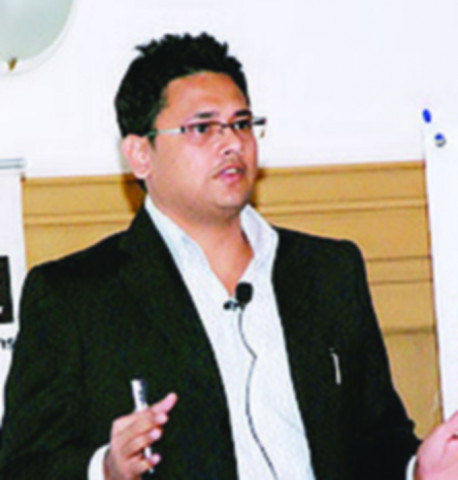‘Digital media misunderstood in Pakistan’
In Pakistan where literacy rate is to be nearly 50 per cent, many question the efficacy of digital media.

‘Digital media misunderstood in Pakistan’
But that is the exact perception Symmetry Digital is determined to change with the launch of Digital Minds – a competition initiated by the company to inculcate the ‘digital mindset’ at grassroots level.
The competition, an industry initiative spanning over the next two months, targets the youth of Karachi in a bid that once the students involved in the contest graduate from universities and join the workforce, they will be able to act as catalysts for the promotion of digital marketing – a ‘smarter, cheaper and more measurable’ choice for advertisers, according to one expert.
To ‘internet’ and beyond
“The concept of digital media has been completely misunderstood in Pakistan,” said Adil Ahmed, the Chief Operating Officer of Symmetry Digital. He explained that people assume that the digital medium is restricted to the internet and fail to take into account other platforms – mobile phones, for example.
Cellular subscriptions have crossed the 99 million mark during the last financial year. “People do not realise this but the number of Facebook users in Pakistan has also increased to 2.5 million from the mere 0.25 million recorded in December 2008,” highlighted Ahmed.
However, according to the man behind one of the largest digital media agencies in the country, the mindset in Pakistan has not been able to evolve beyond the traditionally accepted mediums of marketing. “Since digital marketing is not being properly taught at local universities, the market cannot move beyond a certain penetration point,” contended Ahmed.
He may have a point as even the handful of courses that are taught on the subject focus on e-commerce and the internet. ‘Out-of-home’ digital platforms, for instance, are unheard of in Pakistan. These include interactive LED screens and augmented digital kiosks among other innovative mechanisms to communicate with the target market.
Hence, Digital Minds aims to fill the void by offering participants the opportunity to design innovative marketing plans that are either solely based on digital media or rely on it heavily.
Targeting
“The most important aspect of digital media is the ability to target a specific market,” declared the head of online strategy at a local media group.
Meanwhile, Ahmed termed the digital medium much more ‘measurable’ than, for example, television. “While we are not pushing for a complete digitisation of advertising, it must be realised that a suitable marketing mix is essential to achieve the desired results,” he maintained.
With companies constantly seeking to cut costs, reassessing the feasibility of above-the-line advertising tools deserves merit as not only are these techniques more expensive, their results are very difficult to measure since potential customers are targeted across the board, in a blanket attempt to capture attention.
Although there exists tremendous potential to capitalise on demographic data collected through digital interfaces, Ahmed pointed out that many companies in Pakistan have not made the effort to boost sales by tracking behavioural characteristics or psychographics.
“It is estimated by many that less than two per cent of the entire advertising expenditure is incurred on online campaigns – although there is no empirical research to back this figure,” he concluded.
Published in The Express Tribune, September 25th, 2010.



















COMMENTS
Comments are moderated and generally will be posted if they are on-topic and not abusive.
For more information, please see our Comments FAQ